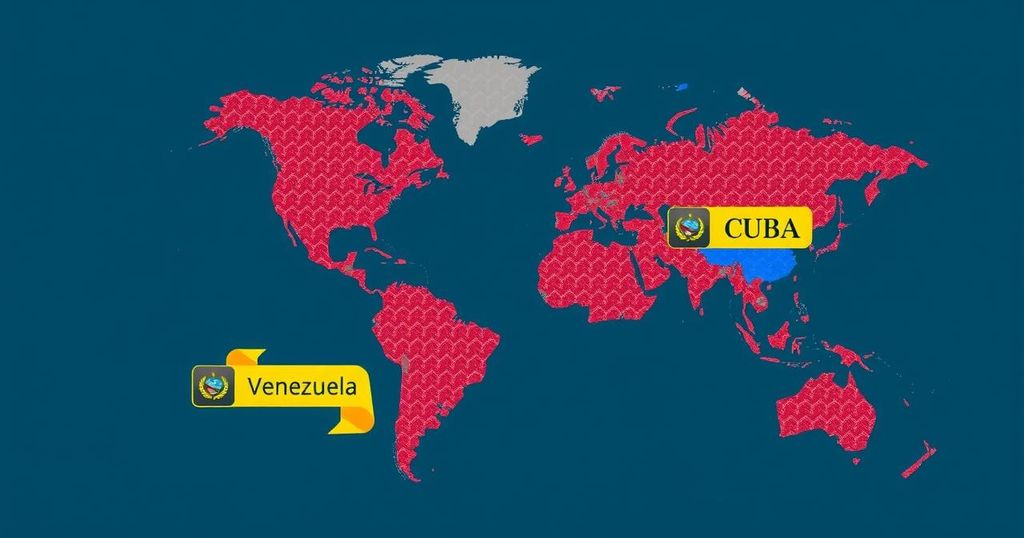World news
AFGHANISTAN, ASIA, BIDEN, CUBA, DEMOCRAT, DONALD TRUMP, EUROPE, FLORIDA, HAITI, HOMELAND SECURITY, KAMAL, KAMALA HARRIS, LEGISLATION, MEXICO, NAREE KETUDAT, NATIONAL SECURITY, NICARAGUA, NORTH AMERICA, PHILIPPINES, POLITICS, PRESIDENTIAL ELECTION 2024, PRESIDENTIAL ELECTIONS, SOUTH AMERICA, SOUTH FLORIDA, U. S, UKRAINE, UNITED STATES, VENEZUELA, WASHINGTON, WLRN
Fatima Alavi
0 Comments
Biden Administration Ends Humanitarian Parole for Migrants from Four Nations
The Biden administration will terminate a two-year humanitarian parole program for Venezuelan, Haitian, Cuban, and Nicaraguan migrants. This decision affects approximately 540,000 individuals and aligns with a push for stricter immigration policies as the 2024 presidential election approaches. Migrants currently enrolled must now seek alternative legal status, while new entrants can still apply.
The Biden administration has announced that it will not renew a two-year humanitarian parole program which permitted migrants from Venezuela, Haiti, Cuba, and Nicaragua to enter the United States via sponsorship and aviation. Initiated in 2022 to mitigate the growing surge of migrants at the U.S.-Mexico border, this program allowed eligible individuals to live and work legally in the United States while they sought alternative legal avenues. The decision significantly impacts South Florida, which hosts substantial communities from these nations, with the last federal reports indicating 214,000 Haitians, 117,000 Venezuelans, 111,000 Cubans, and 96,000 Nicaraguans benefiting from this policy. As the country approaches the 2024 presidential election, this decision aligns with a broader immigration adjustment strategy being advocated by the Biden administration, particularly through the efforts of Vice President Kamala Harris, who has been vocal about promoting a stricter migration stance. In contrast, former President Donald Trump has criticized current immigration initiatives and disseminated misinformation about migrant communities, notably targeting Haitian individuals in recent remarks. Homeland Security officials have indicated that after the two-year period concludes, individuals previously enrolled in the program are required to apply for different legal status, leave the country, or risk deportation. Several alternative legal pathways exist, including ‘temporary protected status’ designated for Venezuelans and Haitians, allowing them to remain in the U.S. due to ongoing violence or international crises in their homelands. It is noteworthy that while this decision halts the existing program, new entrants applying at the border remain unaffected, as do refugees from Afghanistan and Ukraine.
The humanitarian parole program for migrants from Venezuela, Haiti, Cuba, and Nicaragua was established as a legal alternative to manage the increasing number of individuals attempting to enter the United States illegally through the U.S.-Mexico border. By allowing migrants to enter through legal channels while contributing to the economy, the Biden administration aimed to balance humanitarian aid with immigration enforcement. As external pressures mounted, particularly from populous communities in South Florida, the program’s implementation and subsequent termination became a pivotal issue in the broader context of U.S. immigration policy and electoral politics.
The decision not to extend the humanitarian parole program for Venezuelan, Haitian, Cuban, and Nicaraguan migrants signals a significant shift in the Biden administration’s approach to immigration, particularly in the lead-up to the upcoming presidential election. This policy will have profound implications for thousands of migrants currently residing in the United States, necessitating urgent decisions regarding their legal status. The move reflects a delicate balance between enforcing immigration laws and addressing the humanitarian needs driven by crises in these nations.
Original Source: www.wlrn.org




Post Comment